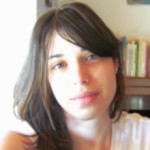Andrea Raos traduce Charles Reznikoff (1894-1976). Due poesie da Holocaust, Black Sparrow Press, Santa Barbara 1975 (II ed.), p. 113.
IX
SVAGHI
1
Il comandante di un campo, tra i suoi divertimenti, come in altri campi
aveva un grosso cane
e al grido “Jude”, cioè “ebreo”
il cane attaccava l’uomo e gli strappava pezzi di carne.
In un altro campo,
gli ebrei che erano appena arrivati
vedevano sempre un cane –
il cane apparteneva a un’SS incaricata delle “docce”, cioè le [camere a gas;
l’uomo chiamava il cane “Mensch”, cioè “uomo”:
e ogni volta che aizzava il cane contro un ebreo diceva: [“Uomo, prendi quel cane!”
*
IX – ENTERTAINMENT
1
The commander of a camp, among his amusements, as in [other camps
had a large dog
and at the cry of “Jude,” that is, “Jew,”
the dog would attack the man and tear off pieces of flesh.
In another camp, the Jews who had just come
kept seeing a dog –
the dog belonged to the S.S. man in charge of “the showers,” [that is, the gas chambers;
the S.S. man would call the dog “Mensch,” that is, “man”:
and whenever he set the dog on a Jew would say, “Man, get [that dog!”
***
X
FOSSE COMUNI
1
Circa trenta ebrei furono condotti a Chelmno
dalle SS
che cercavano uomini forti, robusti.
Di notte le SS andarono in giro per la città
e strapparono le persone dal letto
e le portarono al quartier generale della polizia tedesca.
Vennero caricati su un camion
e delle SS armate di mitragliatori li seguirono a Chelmno.
Lì vennero messi in uno scantinato.
La prima notte, uno di quelli nello scantinato accese una [piccola candela
e lesse le iscrizioni sul muro:
“Nessuno esce vivo di qui”
e “Essere portati a lavorare
vuol dire essere portati alla fucilazione.”
Il mattino dopo, mentre erano ancora nello scantinato,
sentirono un camion di gente arrivare nel cortile
e una voce che diceva:
“Adesso andrete nei bagni;
avrete vestiti nuovi e uscirete a lavorare;”
e alcuni di quelli nel camion si misero a applaudire:
felici di dover lavorare – e quindi di vivere.
Ma ben presto quelli nello scantinato udirono grida [provenire dal camion
quando il motore si mise in moto e il gas cominciò a [fluire all’interno;
e poi le grida cessarono.
Cinque degli ebrei furono presi dallo scantinato
e messi in una stanza – piena di vestiti e di scarpe –
i vestiti e le scarpe rimasti lì.
E gli altri dello scantinato
furono mandati nei boschi
e messi a scavare delle fosse.
Partivano la mattina presto
quando era ancora buio, perché era d’inverno;
e quando i camion arrivavano
dovevano aspettare finché le esalazioni del gas non si [erano disperse
e poi cinque o sei di loro aprivano le porte,
tiravano fuori i morti
e li mettevano proprio nelle fosse.
Uno degli ebrei che lavoravano lì
riconobbe un uomo della sua città
e lo ricordava sano e forte.
Dava ancora segni di vita
e una delle guardie gli sparò alla testa.
Poi arrivarono gli ucraini che lavoravano per i tedeschi –
un ucraino e un tedesco, sempre a coppie –
e gli ucraini avevano in mano delle tenaglie
e estraevano i denti d’oro dei morti
e sfilavano gli anelli d’oro;
e se un anello non veniva via con facilità,
tranciavano il dito.
E poi c’erano degli ebrei il cui lavoro era
sistemare i corpi in modo che formassero un unico strato:
una testa su un lato e i piedi del corpo successivo sullo [stesso lato.
Dopo che l’ebreo che aveva riconosciuto l’uomo della sua [città natale
ebbe lavorato nei boschi per qualche tempo,
tra i morti ci furono altri ebrei della sua città natale
e tra di loro –
sua moglie e i suoi due bambini!
Si sdraiò di fianco a sua moglie e ai suoi bambini e voleva [che i tedeschi gli sparassero;
ma una delle SS disse:
“Sei ancora abbastanza forte per lavorare,”
e lo spinse via.
Quella sera tentò di impiccarsi
ma i suoi amici nello scantinato glielo impedirono
e gli dissero: “Finché hai gli occhi aperti
c’è speranza.”
Il giorno dopo l’uomo che aveva cercato di morire era su [un camion.
Erano ancora nei boschi
e chiese una sigaretta a una delle SS.
Di solito non fumava
ma si accese la sigaretta e, una volta tornato dove erano [seduti i suoi compagni, disse:
“Guardate lì! Quello regala le sigarette.
Perché non andate tutti a chiedergliene una?”
Si alzarono tutti –
erano sul fondo del camion –
si mossero in avanti
e lui rimase indietro.
Aveva un coltellino
e su un lato fece un buco nel telone
e saltò fuori;
cadde sulle ginocchia
ma si rialzò e corse.
Quando le SS cominciarono a sparare
era già scomparso nei boschi.
*
X – MASS GRAVES
1
About thirty Jews were taken to Chelmno
by the S.S.,
looking for strong, husky men.
At night the S.S. went around town
and grabbed people out of their beds
and took them to the headquarters of the German police.
They were then put on a truck
and S.S. men with machine guns followed them to [Chelmno.
There they were put into a cellar.
On the first night, one of those in the cellar lit a little [candle
and read the inscriptions on a wall:
“No one leaves this place alive”
and “When people are taken to work,
they are taken to be shot.”
Netx morning, when they were still in the cellar,
they heard a truckload of people arriving in the courtyard
and a voice saying:
“Now you are going to the bathhouse;
you will get new clothes and go out to work”;
and some of those in the truck began clapping their hands:
glad that they were to work – and live.
But soon those in the cellar could hear screams from the [truck
as the engine began working and the gas flowed in;
and then the screams died down.
Five of the Jews were taken from the cellar
to put in a room – full of clothing and shoes –
the clothing and shoes left behind.
And the rest in the cellar
were sent to the woods
and set to digging trenches.
They would leave early in the morning
when it was still dark, for it was winter;
and when the trucks arrived
they had to wait until the fumes of the gas were gone
and then five or six would open the doors,
take out the dead
and put them right in the trenches.
One of the Jews working there
recognized a man of his own town
and remembered him as healthy and strong.
He still showed signs of life
and one of the guards shot him in the head.
Then the Ukrainians working for the Germans would [come –
a Ukrainian and a German, always in pairs –
and the Ukrainians had pliers in their hands
and pulled out the gold teeth of the dead
and took off the gold rings;
and if a ring did not come off easily,
cut off the finger.
And then there were Jews whose work it was
to place the bodies so that they formed a single layer:
a head on one side and the feet of the next body on the [same side.
After the Jew who had recognized the man from his home [town
had been working in the woods for some time,
other Jews from his own town were among the dead
and among them –
his wife and his two children!
He lay down next to his wife and children and wanted the [Germans to shoot him;
but one of the S.S. men said:
“You still have enough strength to work,”
and pushed him away.
That evening he tried to hang himself
but his friends in the cellar would not let him
and said “As long as your eyes are open,
there is hope.”
The next day the man who had tried to die was on a truck.
They were still in the woods
and he asked on of the S.S. men for a cigarette.
He himslef did not smoke usually
but he lit the cigarette and when he was back where his [companions were sitting, said:
“Look here! He gives our cigarettes.
Why don’t you all ask him for a cigarette?”
They all got up –
they were in the back of the truck –
and went forwards
and he was left behind.
He had a little knife
and made a slit in the tarpaulin at the side
and jumped out;
came down to his knees
but got up and ran.
By the time the S.S. men began shooting
he was gone in the woods.
La traduzione integrale di Holocaust è in corso di pubblicazione per TielleciEditore – Benway Series https://benwayseries.wordpress.com/
Immagine: Campo di Chelmno, foto aerea.
Maria Borio è nata nel 1985 a Perugia. È dottore di ricerca in letteratura italiana contemporanea. Ha pubblicato le raccolte Vite unite ("XII Quaderno italiano di poesia contemporanea", Marcos y Marcos, 2015), L’altro limite (Pordenonelegge-Lietocolle, Pordenone-Faloppio, 2017) e Trasparenza (Interlinea, 2019). Ha scritto le monografie Satura. Da Montale alla lirica contemporanea (Serra, 2013) e Poetiche e individui. La poesia italiana dal 1970 al 2000 (Marsilio, 2018).

